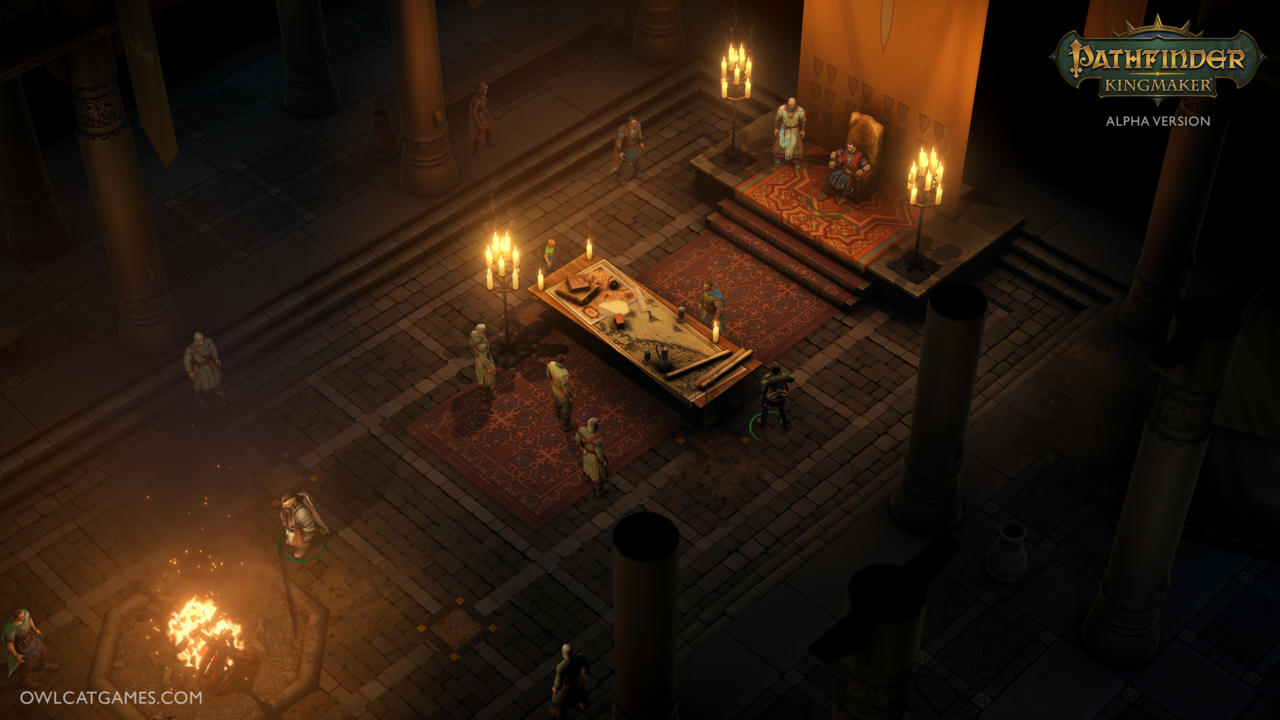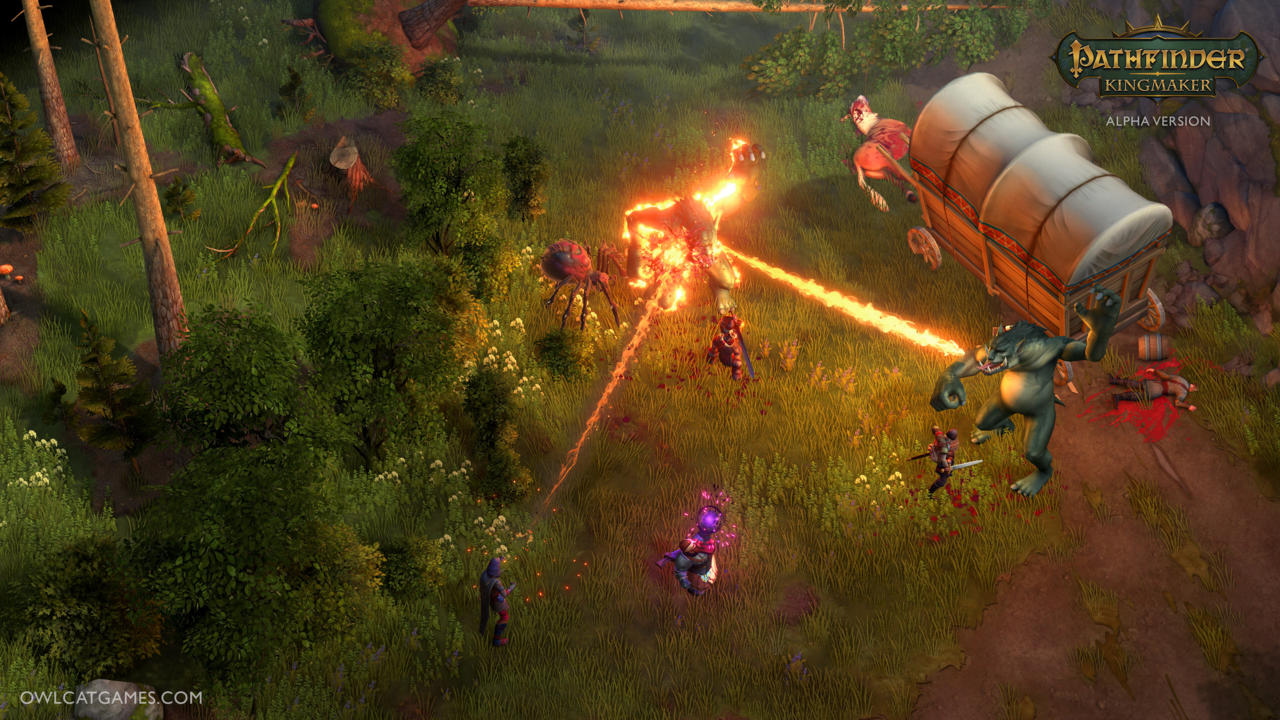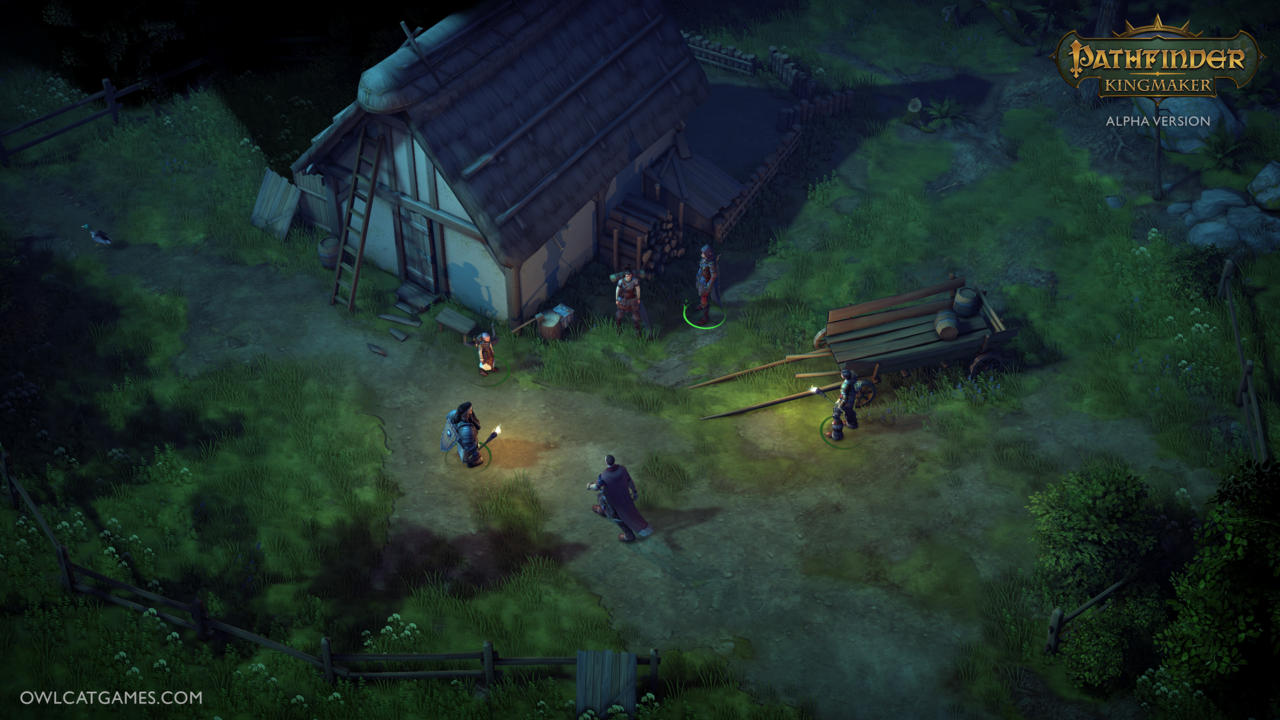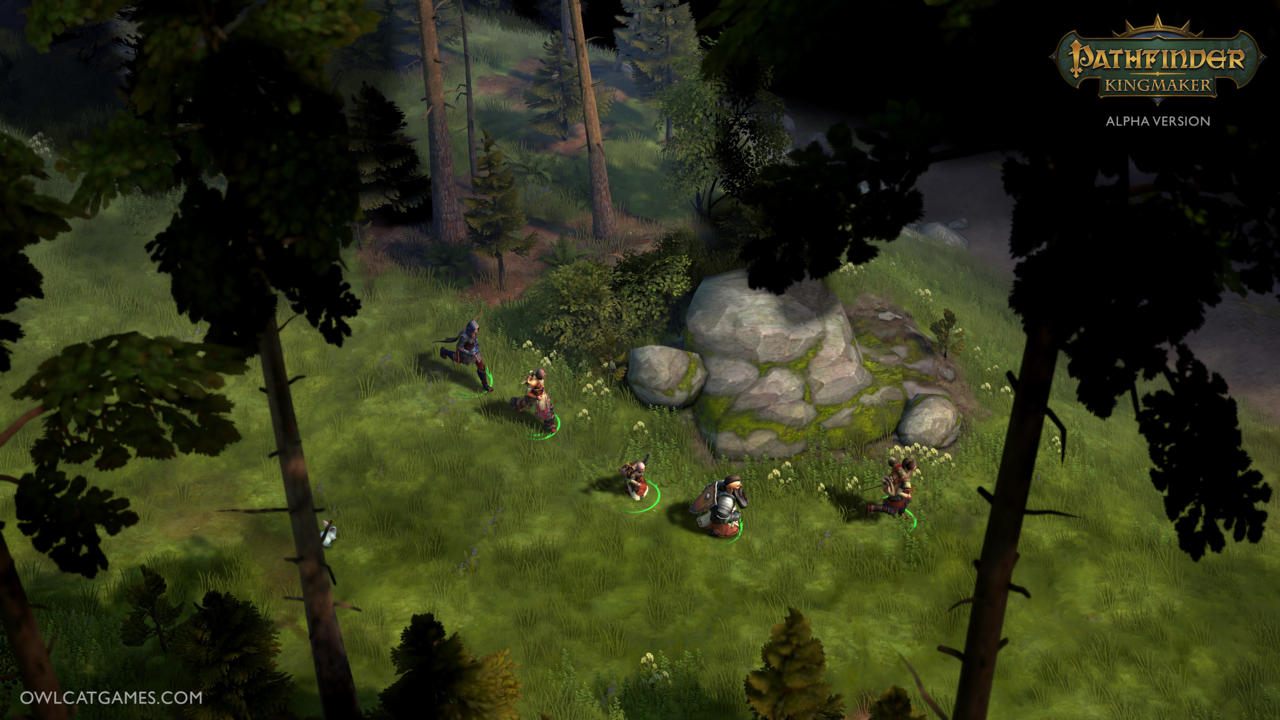Pathfinder: Kingmaker marks the first video game based on the universe of the Pathfinder tabletop RPG. The creatives at Owlcat Games--including RPG vet Chris Avellone--have a collective history with role-playing games, and they saw working on Pathfinder as an opportunity to portray the universe in a new medium. With the Kickstarter campaign in full swing, focusing on enhancing the core game, the developers gave GameSpot an advance look of the game before its unveiling. Speaking with creative director Alexander Mishulin and narrative designer Chris Avellone, they spoke about their history playing the tabletop version of Pathfinder, and the current wave of interest in this so called ‘Computer Role-Playing Game Renaissance’.
Following the Kingmaker adventure storyline in the Pathfinder universe, players take on the role of an adventurer who will eventually leave their mark in an area known as the Stolen Lands, a mostly unsettled region of the River Kingdoms. Facing a centuries-long conflict between the warring factions of trolls, humans, and other cultures, the protagonist must forge their own path around the Stolen Lands with a band of companions, using diplomacy and finesse to achieve their goals, or stick to brute force and other morally bankrupt decisions to carve out their own piece of the untamed land.

While the Pathfinder tabletop series is quite popular, it’s still in its infancy compared to heavy weights like Warhammer and Dungeons & Dragons. First published in 2009 by Paizo Publishing, Pathfinder features a more varied, diverse environment to explore; giving players more incentive to experiment and explore at their leisure. Though the foundation of Pathfinder is based upon a modified version of the 3.5 edition of Dungeons & Dragons, using an Open Game License, the series went on to find its own identity compared to other high-fantasy franchises, helped in part by occasional sci-fi trappings. During the presentation, creative director Alexander Mishulin spoke about his love for Pathfinder, and how ‘out there’ it can go.
“It’s a great universe, we played it a lot on the tabletop, there is a place for anything, not just the usual western fantasy, but a variety of kingdoms, ancient egyptian kingdoms, arabian kingdoms, it just goes everywhere,” stated the Mishulin. “There’s also places where barons fight giant robots, and these robots have lasers, all that sci-fi stuff. There’s even an adventure where you go against increasing cold and winter, and then you find yourself on another planet, and then a time-travel aspect comes in and you find yourself in early 20th century Russia and essentially fight against people with rifles and tanks. It’s all really ridiculous stuff, and while those extreme aspects are very niche and won’t be picked up in our game, this shows how big Pathfinder is--a lot of smart stories about being a king, being a rebel, and you can just enjoy the heck out of it.”
This level of detail and open-endedness is what attracted Owlcat Games--and Avellone in particular--to start work on the project. As they see it, Pathfinder is right at home in the CRPG genre, which shows its strengths in player choice and storytelling. Avellone himself, who has history writing on such games as Fallout 2 and New Vegas, Icewind Dale, Pillars of Eternity, Torment: Tides of Numenera, and the recently released Prey, has some long ties to Pathfinder, and was eager to contribute to the narrative of Kingmaker.

“We used to run a Pathfinder campaign that was a bit unusual, it was an ‘Ocean’s Eleven’ style campaign and we would try to pull off heists,” said Avellone while recalling his early games with the Pathfinder tabletop game. “We weren’t very good at it, but I just liked the flexibility of the Pathfinder system and that it allowed us to build a character party like that and still have a lot of fun. The other things I like about Pathfinder are that I really like how they structure their adventure paths. I feel they don’t lead you in a linear fashion through a critical plotline. They give you a section of the world, they give you a lot of events, and so it feels like ‘oh wow, I’m actually in a Skyrim or Fallout’, they give [a group] events to experience in any order they want by choosing which direction they want to go in. I felt that was such a freeing way to experience the game, and it was very rewarding for us as players. [...] None of it is mandatory, and I felt that’s another thing I like about it.”
The level of enthusiasm and respect for the CRPG genre has remained steady over the years, which the developers credit to the lasting appeal from RPG fans and hardcore PC gamers. Though these games were once seen as a hallmark of the times--late 90s/early 2000s era PC RPGs--and the developers feel the genre is now in a strong period of resurgence due to constant support from fans via crowdfunding websites. In the wake of releases such as Torment: Tides of Numenera, Pillars of Eternity, and Tyranny, making these style of games is no longer the risky move it would have been only a few years ago.
During the presentation, the developers showed off one of the early quests players can take part in. Taking place at the start of Chapter 2, things pick up after taking out a group of bandits. The party rests at a settlement, which allows the main character to interact with their companions and take part in quests stretching across an area of the Stolen Lands. In one quest, the party is presented with a fairly complex moral choice; should they side with a human mage kidnapping and torturing dangerous trolls for experimentation? Or should they release the troll and fight against the corrupt mage? In CRPG fashion, the core storytelling is just as important as the core combat and exploration, and your choices will define your character’s outlook and interactions with others. Though this is the first video game release for Pathfinder, the Kingmaker storyline is already an established arc from the tabletop game, which the developer took some liberties with the source material.

“Because Kingmaker is built on a specific adventure path that a lot of people hold dear, it’s important that we select parts of it and go ‘you know what, this is stuff people really liked, they talk about it a lot, and we should do service to those elements in the actual computer game’,” said Avellone. “But at the same time, we want to see if there’s ways for us to move around and change some circumstances for NPCs. [...] There’s also freedom in the way the adventure paths are structured that allows us to present the players with different opportunities, and that gives us a lot of breathing room to add new events and storylines because how it’s structured.”
In the core game, players can expect to embark on a 40 hour adventure, trekking through a variety of locations and interacting with a characters across a number of cultures in the region. Of course, while you’ll be able to ride the lines good, evil, and everything in between, there will be key moments in the story where you’ll be able to shift alliances and join opposing sides, possibly rupturing your existing allegiances. Granted, these are many common elements in a CRPG title, but Pathfinder's setting and lore makes this particular outing feel otherwise distinct.
The developers believe that a game like this was only possible because of the fans, and the developers were keen on working within a series they were highly passionate about. The kickstarter campaign intends to flesh out the core game, adding new areas, characters, questlines, expanded voice over work, and additional support in localization for other countries. Though Mishulin would love support for the game on tablets, which he referred to as something of a dream stretch goal, they’re sticking to more modest goals focusing on expanding game length and opening up to new audiences across the world. Mishulin stated that he hopes to see more RPG games of this style in the future, but is grateful that his studio now gets the chance to make their dream game.

“This renaissance is what allows us to make this game, because our previous games like MMORPGs and something like Heroes of Might and Magic V, we wanted something different, and a game like this is something we wanted to make,” said the Creative Director. “But for a long time, it was kind of tricky. A lot of RPG games like this were in decline[...] So this [renaissance] allowed us to start work on this game, and I’m really grateful about that because this is the kind of game I’ve been dreaming to make when I got into the industry. I hope it will continue, because I like these games.”
Whether Owlcat Games will get to realize their more ambitious plans remains to be seen, but the developers have still got a number of plans in store for fans of the tabletop series and for the CRPG genre. If the alpha build was any indication, then there’s plenty of opportunities to shape your own identity and leave your mark on the world.
